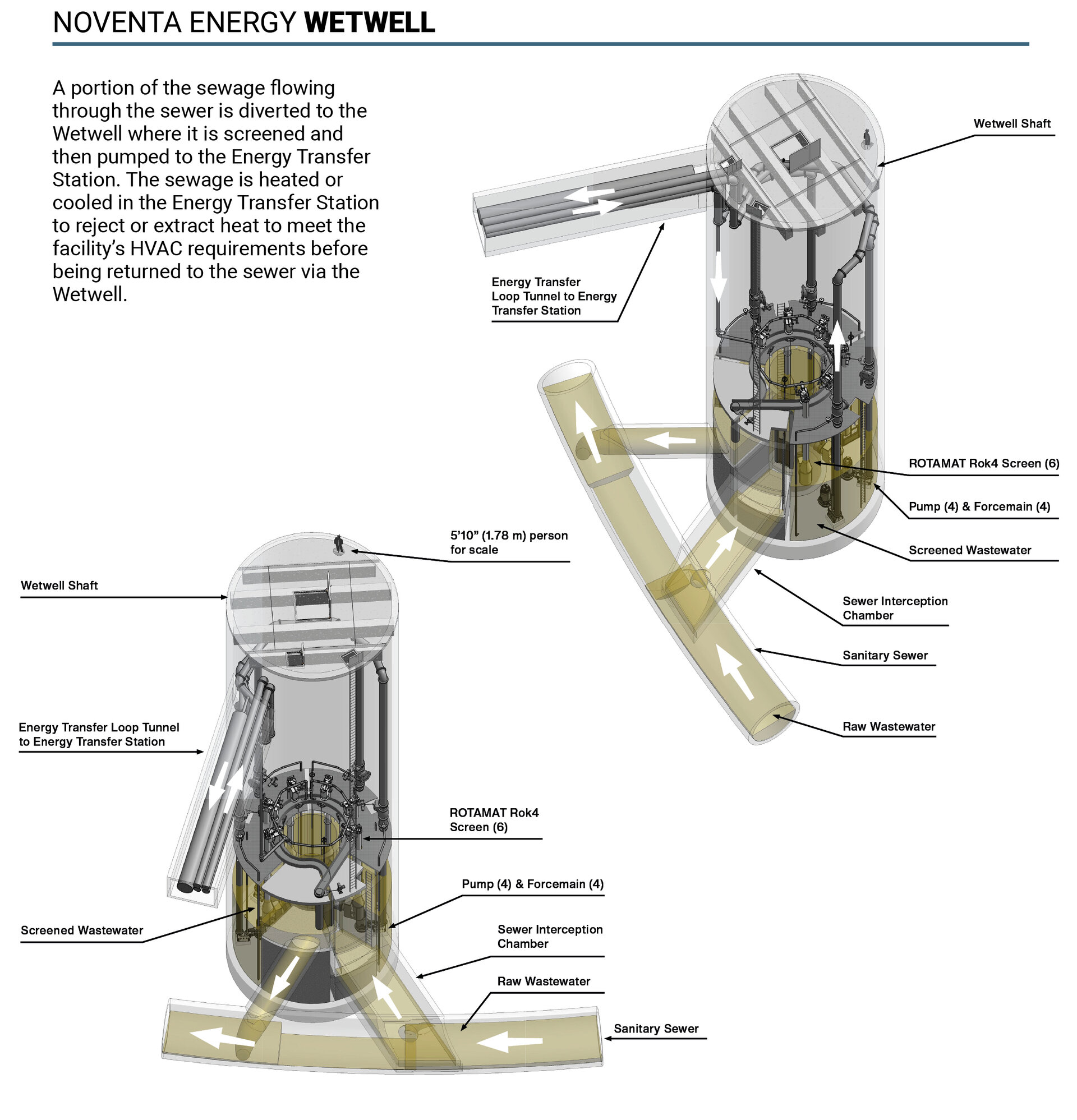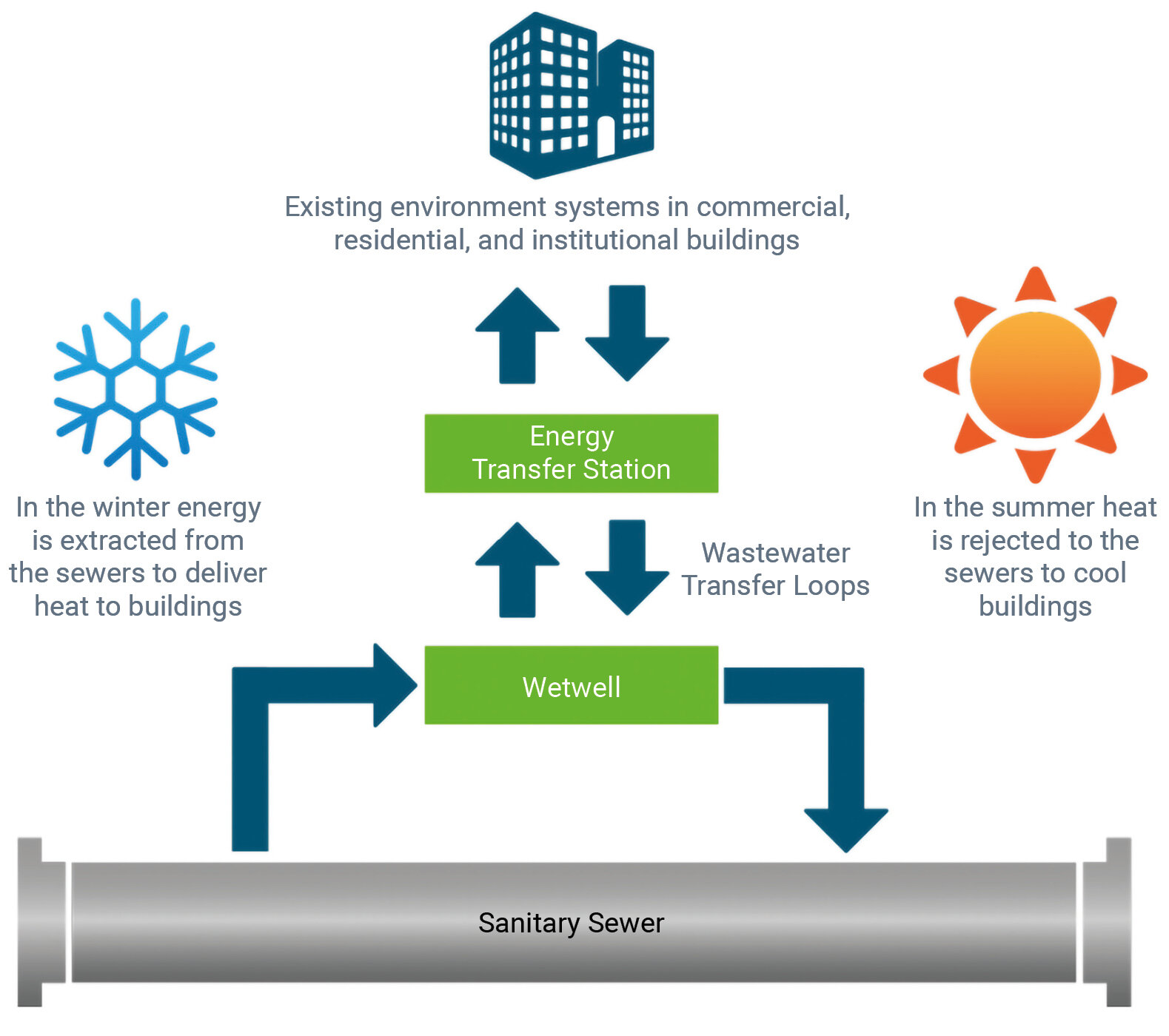Noventa on a Mission to Decarbonize the World Through Disruptive Innovation
Morrison Park Advisors - DNA Inc.– IMAP Canada recently advised Noventa, a renewable energy company, on a majority sale to Ancala Partners. Mr. Dennis Fotinos, Noventa’s founder and CEO, talks to IMAP about the sale, the prioritization of decarbonization and why constant innovation is particularly important in the Energy sector.

PELINO COLAIACOVO
Managing Director
Morrison Park Advisors - DNA Inc. - IMAP Canada
pelino.colaiacovo@imap.com
For those that may not know Noventa, can you share a little about the services you provide?
We deliver customized solutions to reduce carbon emissions and manage energy costs. Using creative design and process innovation, we integrate proprietary technologies into conventional HVAC systems to decarbonize buildings. From complete turn-key projects to engineered equipment sales, we tailor our services to allow communities and businesses to participate in a new economy that is rapidly shifting toward a more sustainable future for all.
Noventa’s key technology is the Wastewater Energy Transfer™ (WET™) System, how does it work?
Using the patented HUBER ThermWin® technology (for which we are exclusive distributors In North America and the UK) and our own proprietary process improvements, we are able to harvest carbon-free thermal energy in wastewater to provide cooling and heating to buildings without Scope 1 GHG emissions. While wastewater energy is not new, our proprietary WET™ Systems are innovative and address every client’s unique needs and challenges.
Furthermore, there are no up-front costs for the client, as we use an Energy-as-a-Service (EaaS) model, so they are charged annual fees for the energy supplied. For building owners and managers, this ensures a sustainable transition to the green economy. They also save money over the life of the project by avoiding the purchase of gas, water, and electricity for use in the pre-existing conventional equipment or replacing their existing conventional heating/cooling system.
What would you say is the key to Noventa’s success to date?
Relentless innovation – we challenge conventional thinking by reimagining how thermal energy can be generated to provide carbon free heating and cooling to buildings. We have also never taken no for an answer and welcome challenging opportunities others would likely turn away.
For example, when we said we were going to tap into one of the largest wastewater sewers in Toronto (160ft underground) and build a large wetwell in one of the city’s busiest intersections to access sufficient wastewater to heat and cool the Toronto Western Hospital, everyone thought we were crazy. Furthermore, our technology was still unproven in this context, yet rather than trialing a small pilot project, we went all in and built what is the largest sewer heat recovery project in the world.


This is also very much a team effort. I may have started this business, but I wouldn’t have been able to get to where I am without my entire team who share the vision, drive, and love of a challenge.
You recently sold a majority interest in Noventa. What was your motivation for seeking an investor and why Ancala Partners?
We’d spent five years growing the business, identifying, and cultivating opportunities for wastewater energy solutions in Canada, the UK, and the U.S. We had developed our proprietary WET™ system technology and were at the point where we needed a partner and capital investment to take these projects to the next stage and into fruition.
It was crucial to find someone committed to developing green alternatives and that understood the nature of these types of infrastructure projects, both from a financial return and ESG standpoint. We spoke to several parties but felt Ancala Partners was really in alignment with us and our vision for the projects.
How was your experience during the M&A process and were you surprised by anything?
This isn’t my first experience, having previously founded and sold another company, Enwave Energy. However, as the motivations, investors, and people are different every time, so is the experience. Founders generally also believe their businesses are worth more than anyone is willing to pay for it, but having been on the buyer side, I knew that I would have to temper my expectations going into this transaction.
It is possible to make being green economically viable
How did you come to choose Morrison Park Advisors – IMAP Canada as your advisor?
I have known Pelino Colaiacovo, David Santangeli and other members of the team for some time now. We’ve worked together in various capacities over the years, and they were also involved in the sales process of my previous company.
What would you say was the key to the success of this transaction?
I would say it’s a combination of sharing a common vision, the commitment to building a business together and truly believing in its future.
You also received additional project funding from the Canada Infrastructure Bank (CIB), how will this be used?
The CIB is a federal government entity providing financing that advances critical priorities for Canada, including the energy transition. It has committed CAD$100 million in the form of low-cost debt to support the construction of Noventa’s WET™ System projects in Canada over the next five years.
The availability of this low-cost financing, coupled with the equity from Ancala Partners, will allow us to finance these projects at the lowest possible cost to our clients. We will also be looking to expand into other markets as opportunities arise.
How important is staying at the forefront of new technology? Is it more important in this sector than others?
Very much so. We’re only at the very start of decarbonization and with each advance challenges also arise. Take electric cars, we still need to find a way to dispose of the lithium batteries. Wind and solar power require special storage and supplies are intermittent. And while wastewater energy is a great solution, we don’t have an infinite supply. Luckily, we have a very robust R&D team which is constantly working on solutions to the challenges that arise with wastewater energy.
We also work closely with other innovators. If we believe in a technology, we don’t want to simply take equity in it. Instead, we look for ways to commercialize it by including it in our projects and if we can prove it works, we then look to become the exclusive distributor. There is no one solution to fix all problems so this enables us to have a wide portfolio of technologies which we can mix. For example, we’re also the exclusive distributor for Kelvin Thermal Energy for certain market segments. The technology stores electricity as high-grade heat in graphite, which can be disposed of safely, as opposed to lithium; along with Huber ThermWin® technology, these collaborations enable us to continually innovate.
Do these technologies come with a price tag - does decarbonizing buildings mean higher operating costs for businesses?
Simply put, we must find ways to make being green economically viable. And it is possible. Our business model focuses on decarbonizing buildings for environmental and social benefits, while at the same time saving money for clients. Projects are only successful when both objectives are realized. Our WET™ System for example, reduces the consumption of water for cooling purposes, which in some jurisdictions can be more costly than energy. Fossil fuel prices are rocketing, so in jurisdictions which have put a price on carbon, an alternative is replacing them can be Wastewater Energy Transfer™.
My belief is that all of us should at least try to be green when we can. What we are seeing today are the results of our actions 30 or so years ago, so if we truly care about our children’s futures, then we need to act now. We may not be able to do it today, but we should at least have a plan. I see a change and am encouraged by the younger generation. We hire a lot of engineering graduates, and they are increasingly creative and want to work in our R&D department and innovate, which is great and makes me optimistic for the future.

Canada Prioritizes Renewable Energy
In its recent annual budget, the Government of Canada announced significant new support for renewable energy technologies. To a large extent, this was in response to the Inflation Reduction Act (IRA) promulgated in the United States in 2022. The IRA will provide large new subsidies for renewable energy technologies and could drive many renewable energy companies to focus their activities in the U.S. unless other countries offer similar levels of support.
Canada has now introduced a variety of “refundable tax credits” which amount to subsidies for the development of renewable energy projects. Unlike the more traditional government grants, these projects must be built and financed, and only once they are fully operational, can part of the cost be refunded:
- Wind, solar, and geothermal technologies, among others: 30% of the project’s capital cost will be refundable (including the purchase of the equipment and the cost of installing/constructing it, but excluding “soft” costs such as permitting or engineering)
- Hydrogen projects: up to 40% of the cost will be refunded
This program is intended to be in place for the next 10 years to provide renewable energy companies with the certainty they need to pursue these long-term projects.
In addition to the tax credits, the federal government is also supporting renewable energy projects through:
- Canada Infrastructure Bank: providing low-cost loans to qualifying renewable energy projects
- Direct grants and subsidies: to companies developing new renewable energy technologies, or new applications of existing technologies
- Special grants and subsidies: for Indigenous People developing renewable energy projects to replace fossil fuel energy in their communities. In these cases, government support can reach more than 80% of the cost of renewable energy equipment.

More articles
Poradce je Vaším kompasem.
Obraťte se na nás pro nezávaznou konzultaci se specialistou na fúze a akvizice, který si pozorně vyslechne Vaše potřeby a upřímně a nezaujatě posoudí nejlepší možné řešení.